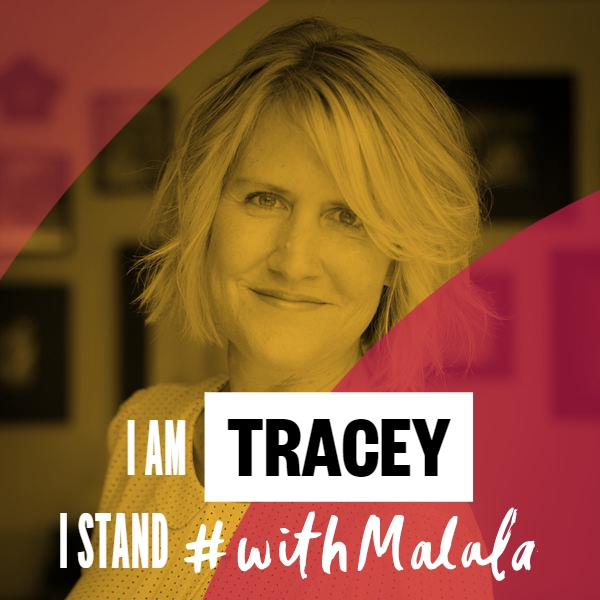
11 Oct Sparking a Conversation : A Parent Discussion Guide for #HeNamedMeMalala
I vividly remember the day that my daughter (then a freshman) came to me, tears welled up, asking how I could have possibly kept so many of the world’s atrocities from her? A brand new student in her High School’s Model United Nations program, her perpetual homework was to research world issues. Specifically, in this case, it was crimes against children. I’ll never forget that painful, uncomfortable, apologetic conversation about how I didn’t myself know much about said issues and how I thought I was doing my job by keeping her from injustices like these. Overflowing with emotion, she just shook her head at me, “no”; her eyes wide with a new knowledge, her heart aching with deep empathy and her mind spinning with what she was clearly expressing as a betrayal.
Is your heart sinking yet? Mine is, just reliving that day.
I shared this story in a post called One Mother’s Journey Toward Advocacy and how it kick-started something amazing. For her, and for me. Fast forward 4 years later, and my daughter is in Washington, DC, studying International Relations, and actively participating as a delegate and a chair at collegiate level MUN conferences. Passionate, curious and insistent, she’s learning everything she can and more about global issues of all kinds to arm herself to be the change she wants to see in the world. There’s not a day that goes by that I am not inspired by her drive and dedication. I’m a better mother, a better human, because of her.
With the newly released movie He Named Me Malala (just in time for the #InternationalDayoftheGirl), I’m reminded of the look on my daughter’s face. I’m hearing her urging me not to keep her sister in the dark, like she was. Thankfully, my youngest (now 12 and in 7th grade) has been privy to a number of global issues by default. With 4 years of MUN under our entire family’s belt, inspiring world news as a constant topic of dinner table conversation, she knows much more at this age than her sister ever knew. Still, I can’t boast being the best at not wanting to “protect” her. I need/want/have to learn how to discuss things with her that are hard. The Malala film is exactly the kind of film that will help me do just that, I saw it and I loved it. Yet, even after all of this, I can still find myself hesitant (I know, I know), wondering if she’s old enough to process a (true & difficult) story like Malala’s. It’s hard for me to even admit it. Clearly, I still need a lot of help learning how to navigate this kind of thing, I’m so grateful for the people who want to help! Some amazing ladies put their heads and hearts together to create a constructive and meaningful Parent Discussion Guide for parents (just like me). Thank you Elena Sonnino! I’m looking forward to digging into it with my daughter before (and after) seeing the movie and having the kinds of discussions that will lead to not only a better understanding of what’s happening with Malala and in the world, but will also help build and strengthen our mother daughter relationship. There’s nothing more important to me than that.
Sheepishly I ask you, have there been times when you question when to spark parent/child discussions about difficult (uncomfortable, emotional, awkward, challenging) topics? I’d love to know I’m not alone, but even more, I’d love to hear your secrets of how you find the resolve to just jump in and TALK about it.
Above graphic created at www.standwithmalala.org. Once my daughter sees the film, I will encourage her to create one for herself.


Sorry, the comment form is closed at this time.